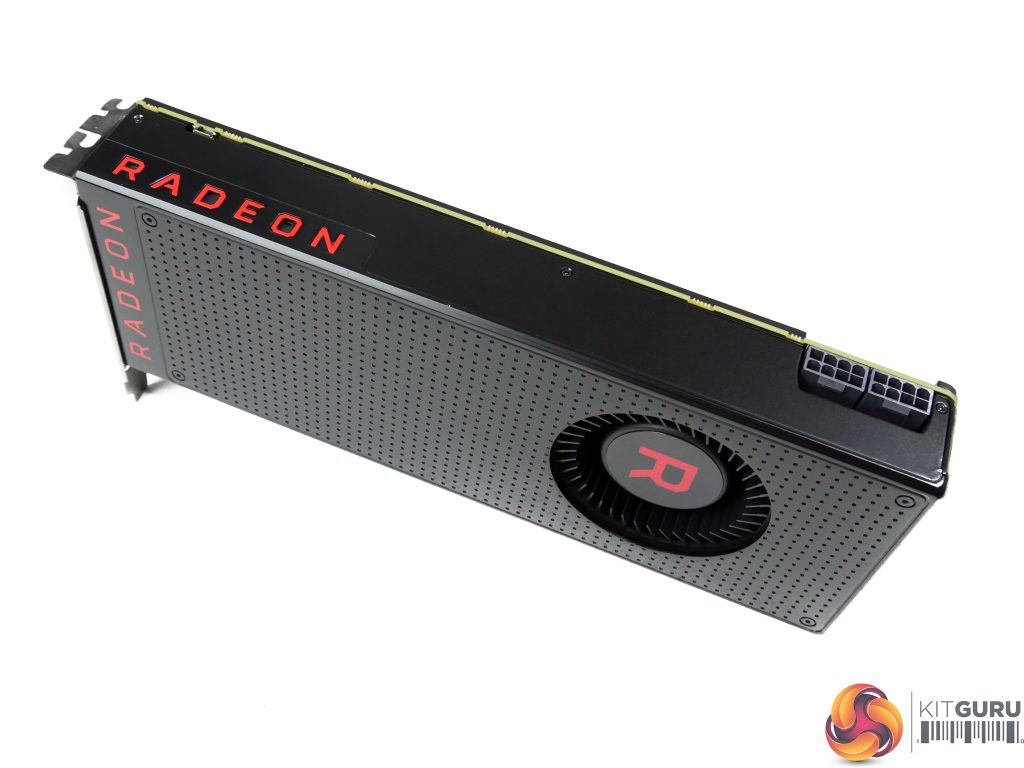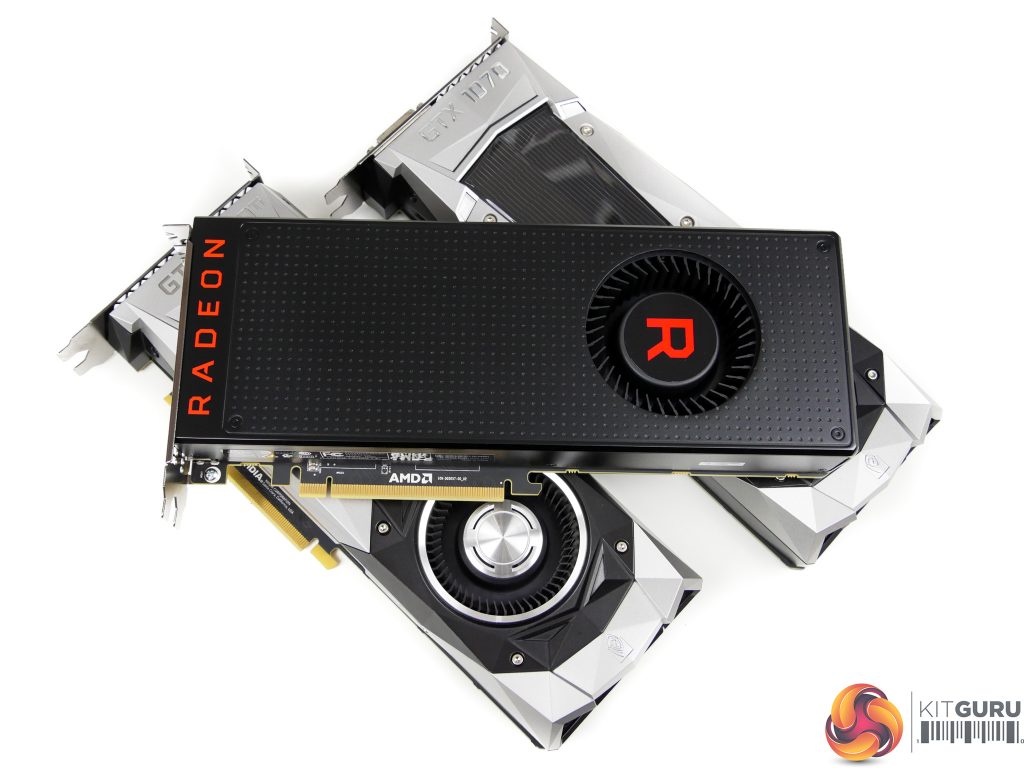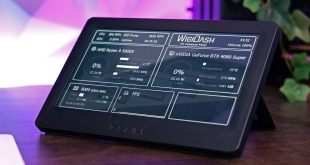Radeon RX Vega represents AMD's long-awaited return to the high-end gaming graphics card market. The RX Vega64 air-cooled sample used for our testing shows that AMD has created a solid offering that is likely to appeal to 1440P gamers looking to invest in the FreeSync ecosystem. In general, RX Vega64 performance sits above a GTX 1070 FE and below a factory-overclocked GTX 1080.
Enthusiasts looking for a 4K60-capable graphics card for their AAA titles with ultra image quality settings need to look elsewhere (i.e. Nvidia's more expensive GTX 1080 Ti or Titan Xp). However, RX Vega64 can be stretched to offer playable 4K performance if image quality settings are reduced or older titles are the preference.
Where RX Vega64 in its air-cooled form does well is at 1440P. More often than not, the card hit an average frame rate of more than 60 FPS with Very High quality settings in our tested games. Minimum frame rates at 1440P were also in a good range for gamers looking to stay above the lower frequency range of a FreeSync monitor.
Moving on to power, thermal, and acoustic performance for RX Vega64 Air, none of those metrics make for positive reading to AMD fans when using the performance-biased ‘Turbo' power profile that we tested with. In order to squeeze out the additional performance offered by ‘Turbo' mode, power consumption has increased significantly which has in turn resulted in high temperatures and a loud cooling solution (as well as plenty of thermal throttling).
As a comparison, Nvidia'x GTX 1080 Ti draws noticeably less power than RX Vega64 and offers performance that is in a higher league. GTX 1080 and 1070 are far more efficient in terms of power draw and therefore are able to run at lower GPU temperatures with quieter coolers (albeit while using a three-fan board partner cooler for the Gigabyte GTX 1080).
Overclocking will happily push system wide power draw past 500W when the Vega64 card is running at frequencies in the region of 1727-1832MHz (Update: please read the overclocking page for an update). This is a power hungry card if you want to extract its performance. However, AMD deserves credit for making different power profiles selectable via software.
Looking at price versus performance, however, AMD's RX Vega64 air-cooled card is lacking in comparison to Nvidia's higher- and lower-performance offerings. Hampered by its poor cooling solution and the high likelihood of early drivers not extracting maximum performance, Nvidia's factory-overclocked GTX 1080s are around 10% more expensive in the UK but tend to offer far more than 10% performance uplift in many games. GTX 1070s start at around 20% lower cost than RX Vega64 (if you can bag one before the miners) but are well within 20% of the AMD card's performance in most scenarios.
One positive for AMD, despite our very brief testing period thus far, looks to be overclocking capability of RX Vega64. If you are happy to remove the power-delivery shackles, it looks like solid performance gains can be extracted from the increased clock speeds. (please read our update on the overclocking page). If custom-cooled, factory-overclocked come in at around £450-480 (thus undercutting OC GTX 1080s), RX Vega64's market position will be far more competitive.
Of course, the value argument is also skewed by the Radeon packs being offered by AMD. If you are in the market for a graphics card, the relevant games, a FreeSync monitor, and/or a Ryzen combination, the discounts offered on those partnering items completely change the value perspective versus Nvidia. However, that situation boils down to individual needs and is difficult to analyse outside of a situation-by-situation perspective.
At the suggested price of £450, AMD's RX Vega64 Air is a solid option for buyers looking to invest in AMD's wider ecosystem which includes lower-cost (compared to G-Sync) FreeSync monitor. However, Nvidia's cheaper and less power-hungry GTX 1070 puts in a good fight against RX Vega64 Air and overclocked GTX 1080 models look to comfortably justify their price premium in the order of 10%.
Update 18/0/2017: Suggestions of permanent $100/£100 price rises have not been acknowledged by AMD so it is unclear if pricing will return to £450/$499. At the current prices of £550+/$599+, you should not purchase Vega64 Air as it represents incredibly poor value for money. Our review recommendations stand if pricing returns to the level that AMD suggested it would be at (£450/$499). In the meantime, there are far better options (such as overclocked GTX 1080 cards, plus £50+ of change) for the price that RX Vega64 is currently selling at. We do not recommend purchasing, or even considering, RX Vega64 Air at the current prices of £550+/$599+.
AMD needs its board partners to step up and offer well-cooled, factory-overclocked RX Vega64 models that run at lower temperatures and reduced noise output. Those solutions, coupled with performance uplift as drivers mature, will help AMD's RX Vega64 justify its current price.
Discuss on our Facebook page HERE.
Pros:
- A compelling option for 1440P gamers.
- Gives Nvidia competition against its GTX 1070 and GTX 1080 cards.
- Expands the GPU options available to FreeSync gamers with 1440P and 4K monitors.
Looks to have good overclocking headroom if you don't mind the power draw or cooler noise(see overclocking page for update).- Eye-catching backplate and an aesthetically-friendly black design.
- AMD's software-based power profiles are good for giving users flexibility.
- High memory bandwidth (compared to GTX 1070 and GTX 1080) may benefit games at higher resolutions.
- Availability of the card in Radeon packs may help save some users money on the accompanying purchases, albeit while confusing the purchasing process.
Cons:
- Very power hungry in its performance-biased ‘Turbo' power mode.
- Needs dual 8-pin connectors which require beefier PSUs and may limit SFF usability.
- Reference cooler is loud with sub-par cooling and is somewhat overstretched by its task on this GPU.
- Thermal throttling is common with the cooler and high power draw.
- Price versus performance against Nvidia options does not look great with current AMD drivers and the reference cooling solution.
KitGuru says: It is good to see AMD back in a competitive position on the high-end GPU market. AMD's RX Vega64 has shortcomings which should be addressed by driver updates and custom-cooled, factory-overclocked board partner cards. If you need a high-performance AMD graphics card for 1440P gaming right now, RX Vega64 is a solid option. However, we would suggest waiting to see what well-cooled board partner cards bring to the market.
Be sure to check out our sponsors store EKWB here
 KitGuru KitGuru.net – Tech News | Hardware News | Hardware Reviews | IOS | Mobile | Gaming | Graphics Cards
KitGuru KitGuru.net – Tech News | Hardware News | Hardware Reviews | IOS | Mobile | Gaming | Graphics Cards






